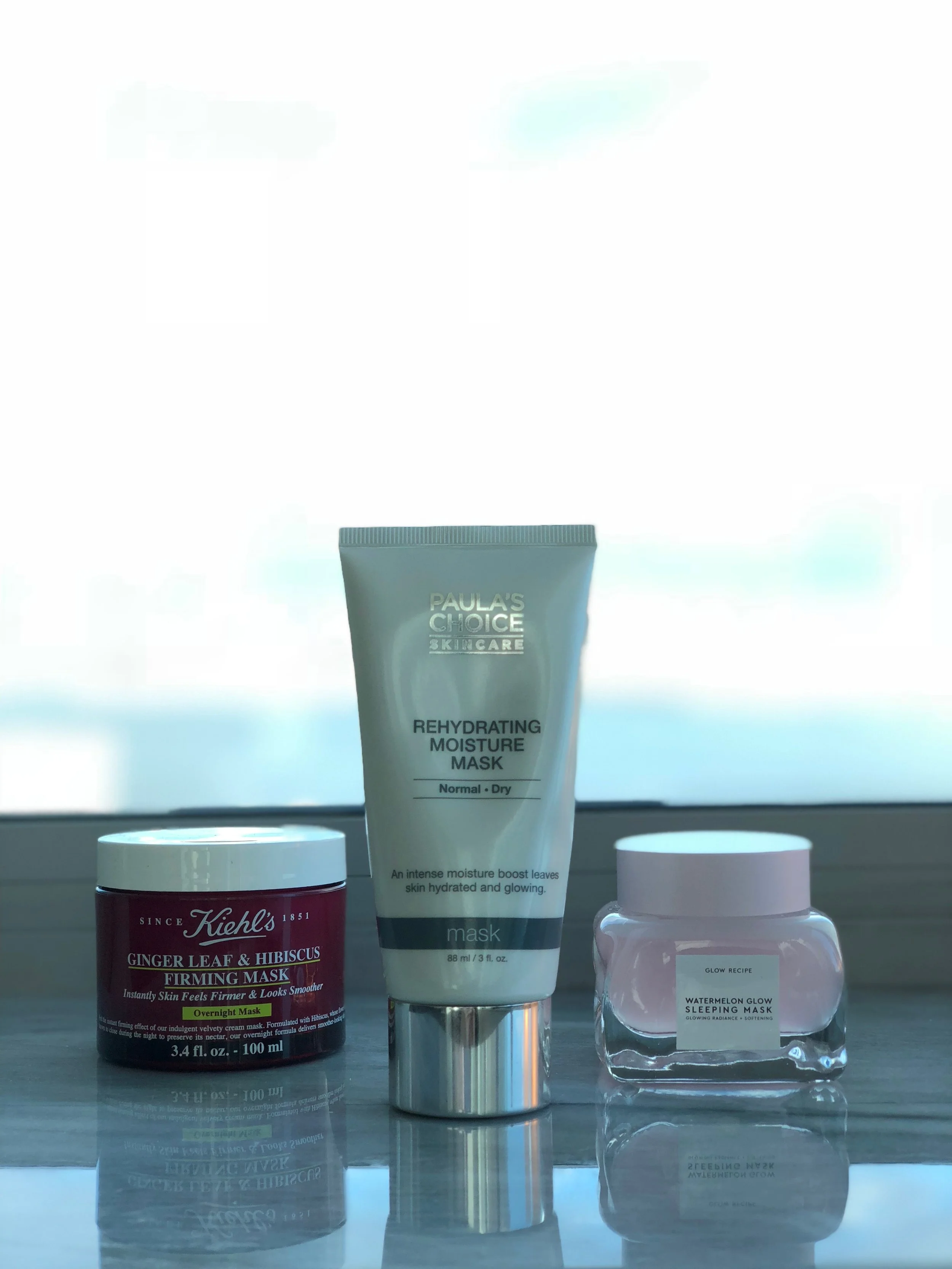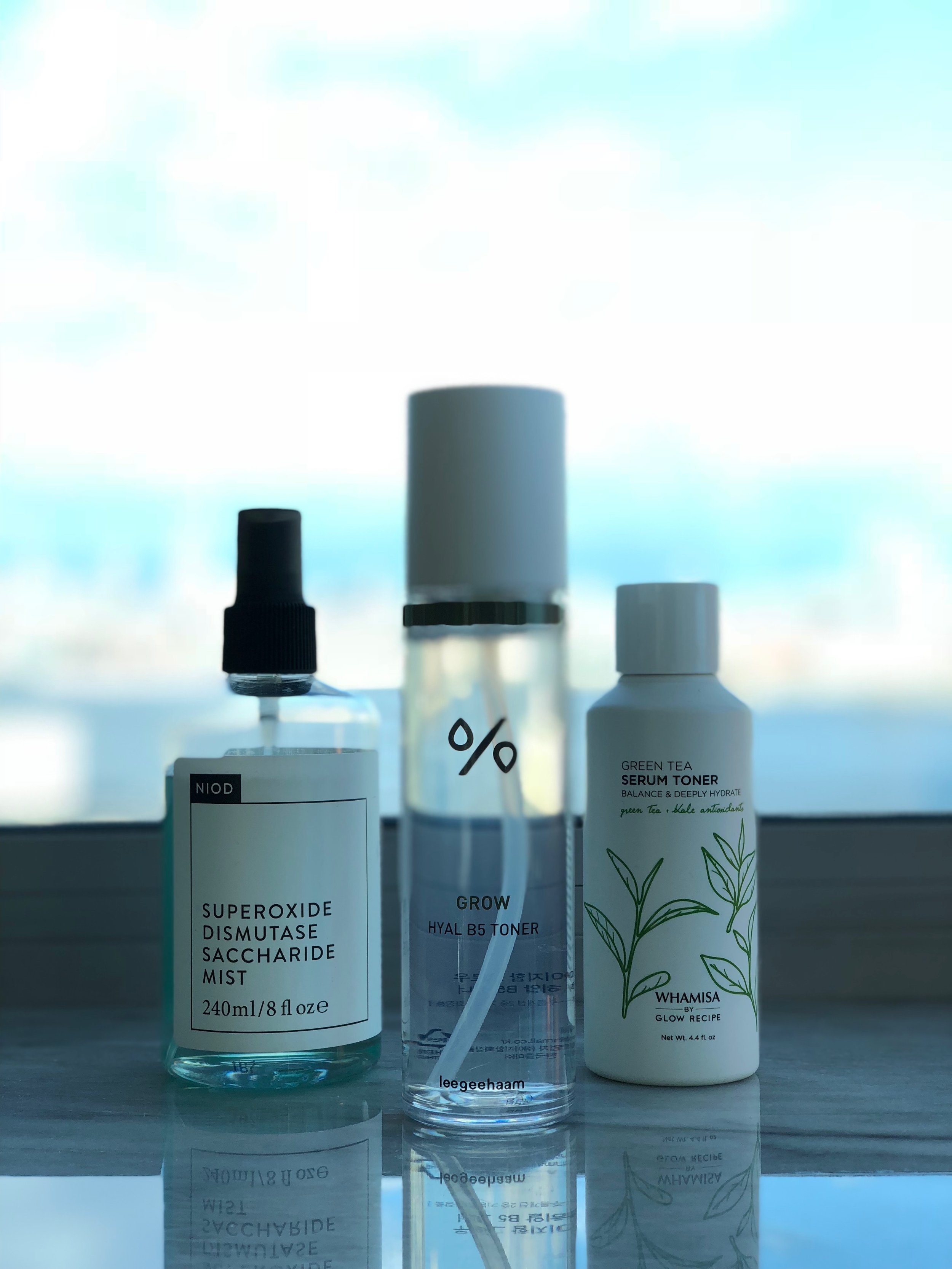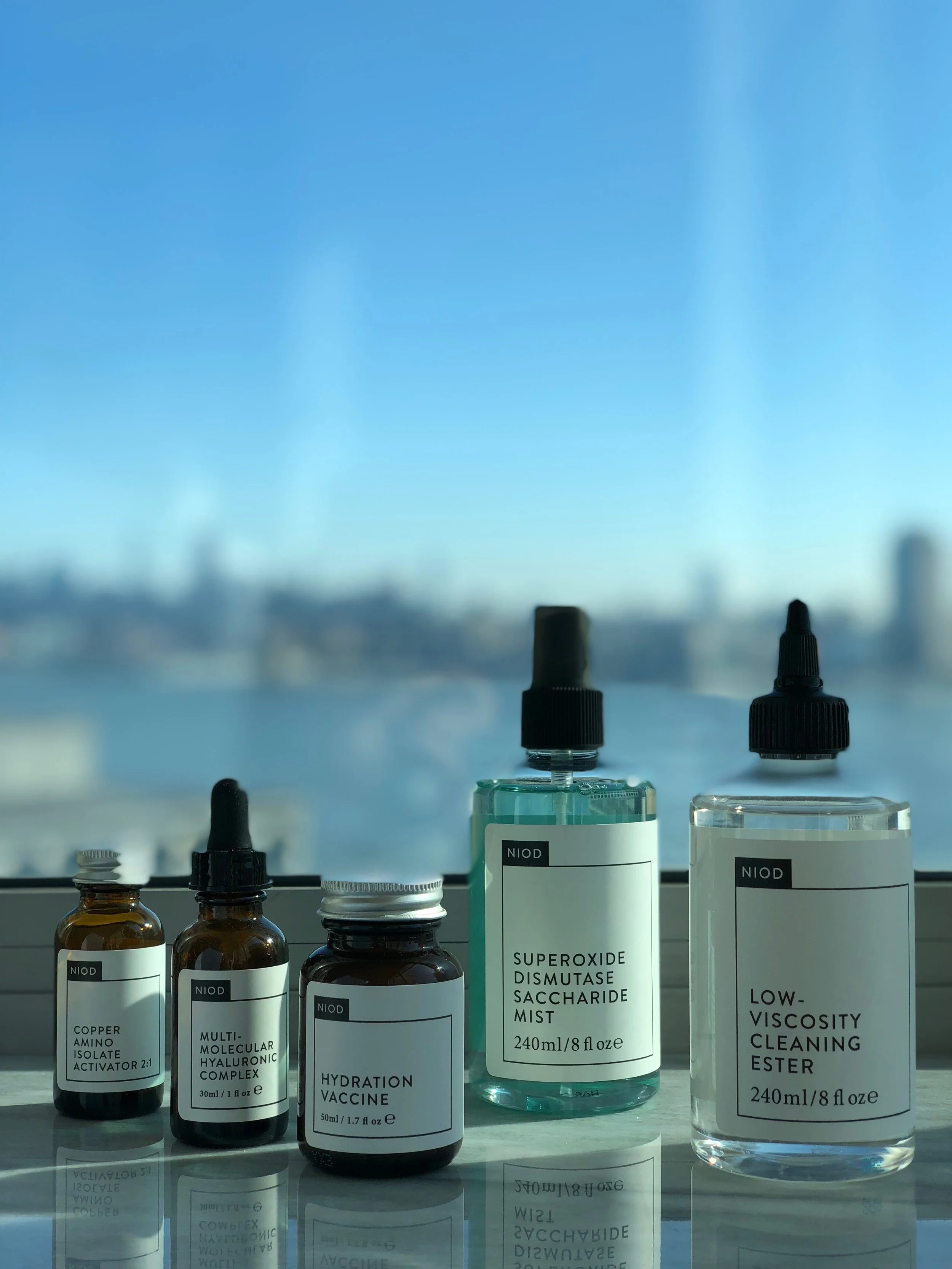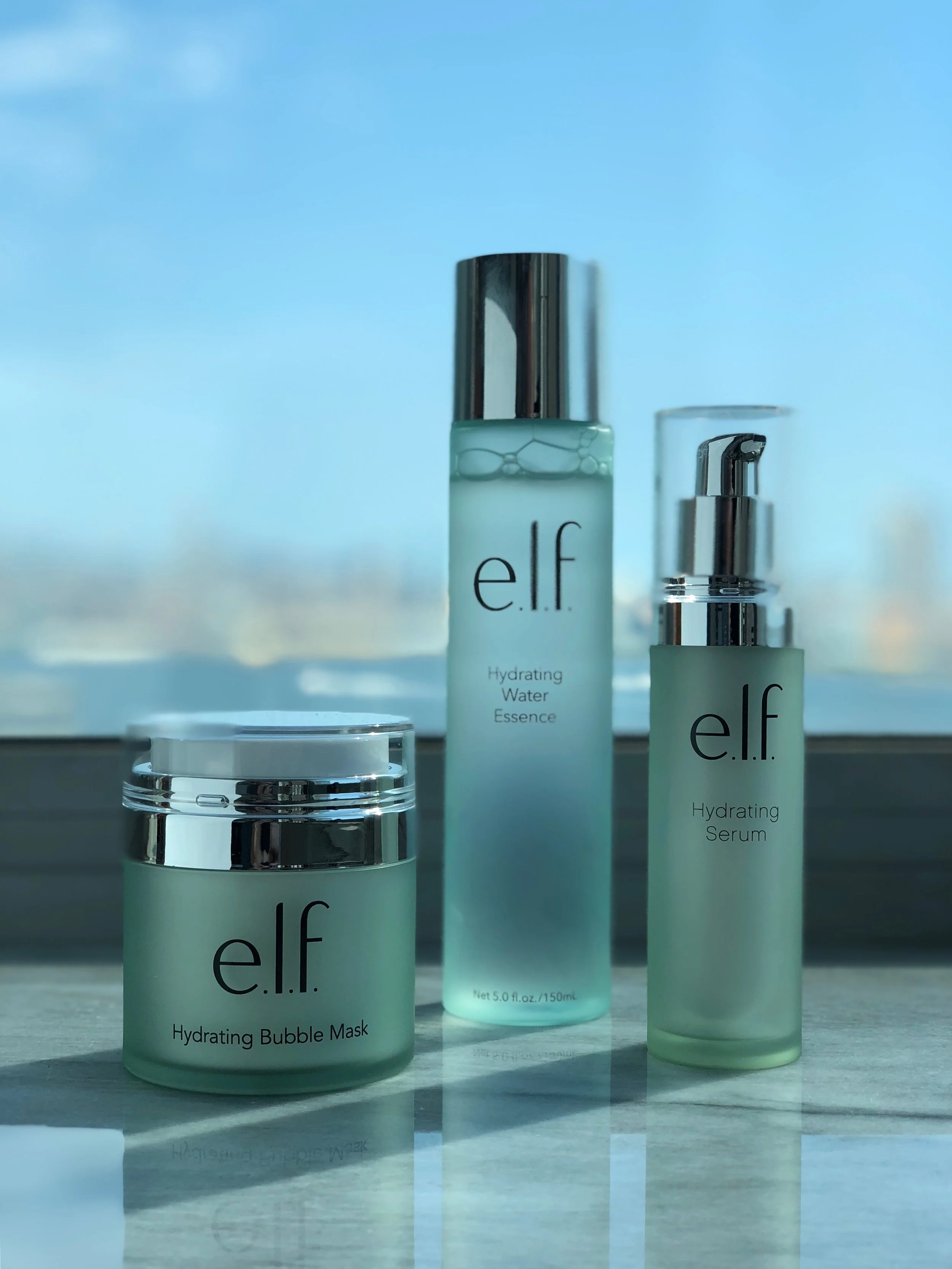SKINCARE 101 : Overnight Sleeping Masks 🛌 💤
There's nothing like a good night's sleep to restore your skin to a healthy state. In fact, I believe rest is as essential to skin health as hydration, sun protection and antioxidants. And the converse is also true, i.e. lack of sleep can be as detrimental to healthy skin functioning as pollution, alcohol and smoking.
A few years back, I began to notice a whole new category of skincare products coming into play that were being marketed as "sleeping masks" or "overnight masks." For a while, it looked like just another trendy marketing gimmick. As they began to proliferate, Sephora seemed to be making a big push into the category. Suddenly, I came down with a case of FOMO and I started to think seriously about what a sleeping mask could actual offer that you couldn't or wouldn't get from a well-formulated night cream.
Then it hit me. Occlusion! To occlude means to close, plug, block — as in the passage or flow of something. It comes from the Latin "occlūdere : to shut up, close up, equivalent to oc- oc- + -clūdere, combining form of claudere to close." 🤔
So what the heck does this have to do with sleeping masks? A sleeping mask is as different from a night cream as night and day (sorry!). A well-formulated sleeping mask prevents water loss while you sleep by forming a film over your skin that functions like a veil, or additional skin layer. It's occlusive, meaning that it prevents water from evaporating through your pores into the dry, low-humidity air around you. In the winter, low humidity turns the air into a magnet that literally sucks the water out of your skin layers. That's why our skin feels dry in winter and why we need richer creams and oils in cold weather. So, by preventing water loss, you're in effect keeping your skin more hydrated and healthy. The gimmick here is actually the idea of a night cream at all! The truth is, your skin doesn't need a separate "day cream" and "night cream;" your skin needs moisture AM and PM. It doesn't matter if the product name claims it's for day or night. (Trust me, I've written hundreds of labels for those cartons and tubes!) The only difference between a day and night product should be sunscreen. Unless the moisturizer contains sunscreen — which should, for very obvious reasons, only be applied in the day — it's just as effective in the light as it is in the dark!
But sleeping masks are different animals entirely. Unlike a moisturizer, they're intended to be occlusive. They're intended to prevent water loss and keep your skin from becoming dehydrated and fatigued by the morning. Who wants to wake up looking like they haven't slept?
Of course, not all sleeping masks are created equal. Well-formulated sleeping masks — like my favorite Watermelon Glow Sleeping Mask from Glow Recipe — contain only good-for-skin ingredients like glycerin (and other effective humectants that hold moisture in the skin); restorative and nourishing vitamins like Vitamin C and Vitamin E; and emollients like plant oils, mineral oil, shea butter, cocoa butter, petrolatum, and fatty acids. Like all skin care, you want to avoid anything that has the potential to irritate your skin or (do I have to say it?) causes damage. That means no fragrant plant oils (e.g. lavender oil, peppermint oil, orange oil) or denatured alcohol. All of these are irritants and, as is the case with isopropyl alcohol, can damage, degrade and thin your moisture barrier over time. A thin moisture barrier means your skin will lose more water, more rapidly.
So, the first rule of thumb when choosing a sleeping mask is the ingredients. They're enveloping your skin throughout the night, make sure they're treating it with TLC! Second is how the formula functions. It's the last step in your skincare regimen for a reason. It seals in everything you've applied underneath it. And it should continue to do that throughout the night, or it's failed in its mission. In the morning, if you don't feel any of the sleeping mask still on your skin, it's not a sleeping mask! (You'll know when you go to wash it off if there's anything there to wash off.)
Hands down, the Glow Recipe Watermelon Glow Sleeping Mask is the best I've ever used! In addition to all the great hydration ingredients, it's loaded with humectants and emollients — and even a touch of glycolic acid (AHA) for a gentle exfoliating action as well. Of all the masks I've tried, it's the most occlusive; there's almost as much as you applied before bed still on your skin in the morning.
It gets...
⭐️⭐️⭐️⭐️⭐️
I've recently tested the Ginger Leaf & Hibiscus Firming Overnight Mask from Kiehl's and I do like it. It's got an impressive line-up of ingredients I want on my skin, but it does contain several fragrant plant (essential) oils that I don't. Particularly lavender, which is a no-no in my book. The morning-after test revealed a measurable degree of the mask remaining on my face, though, despite its name, I never believed it was going to firm anything. I'm not a believer in firming claims! Only fillers can effectively and measurably firm your skin. Anything else is all in your head, that is, in whether you believe it or not.
Two other sleeping masks that I'm fond of are from the GOAT, skincare guru herself Paul Begoun. The Paula's Choice Rehydrating Moisture Mask and RADIANCE Renewal Mask are both excellent formulas, the former being a bit thicker and the latter somewhat lighter and silkier. In fact both are just about perfect sleeping mask treatments. I would expect nothing less from Ms. Begoun!
So, while you're getting your beauty sleep tonight, why not take full advantage of those hours of repose and take great care of your skin, too. You'll wake up looking refreshed, I promise!
Sleep, my pretty, sleeeeeeep...
🖤 SKINCARMA
🖤 SKINCARMA











